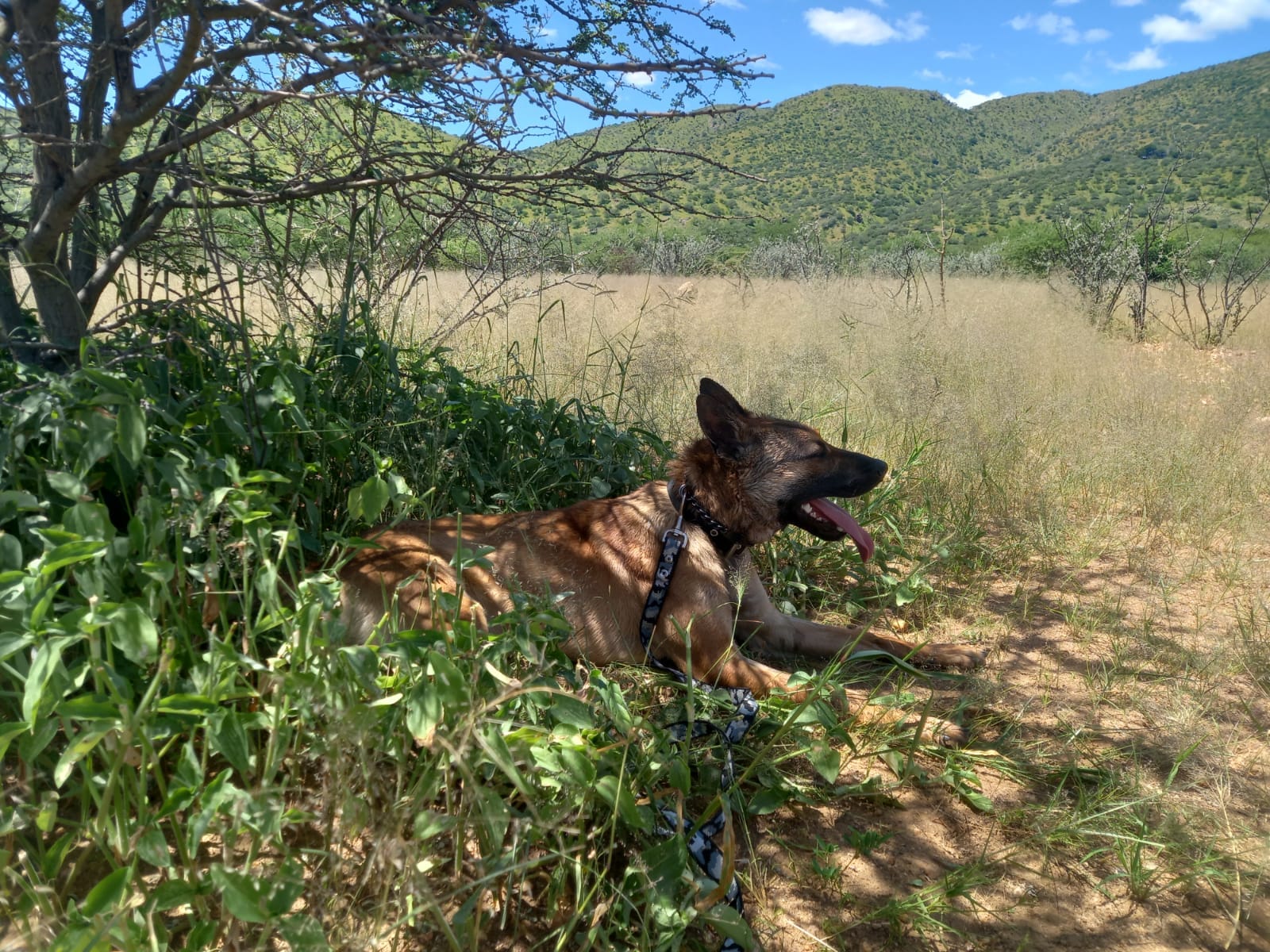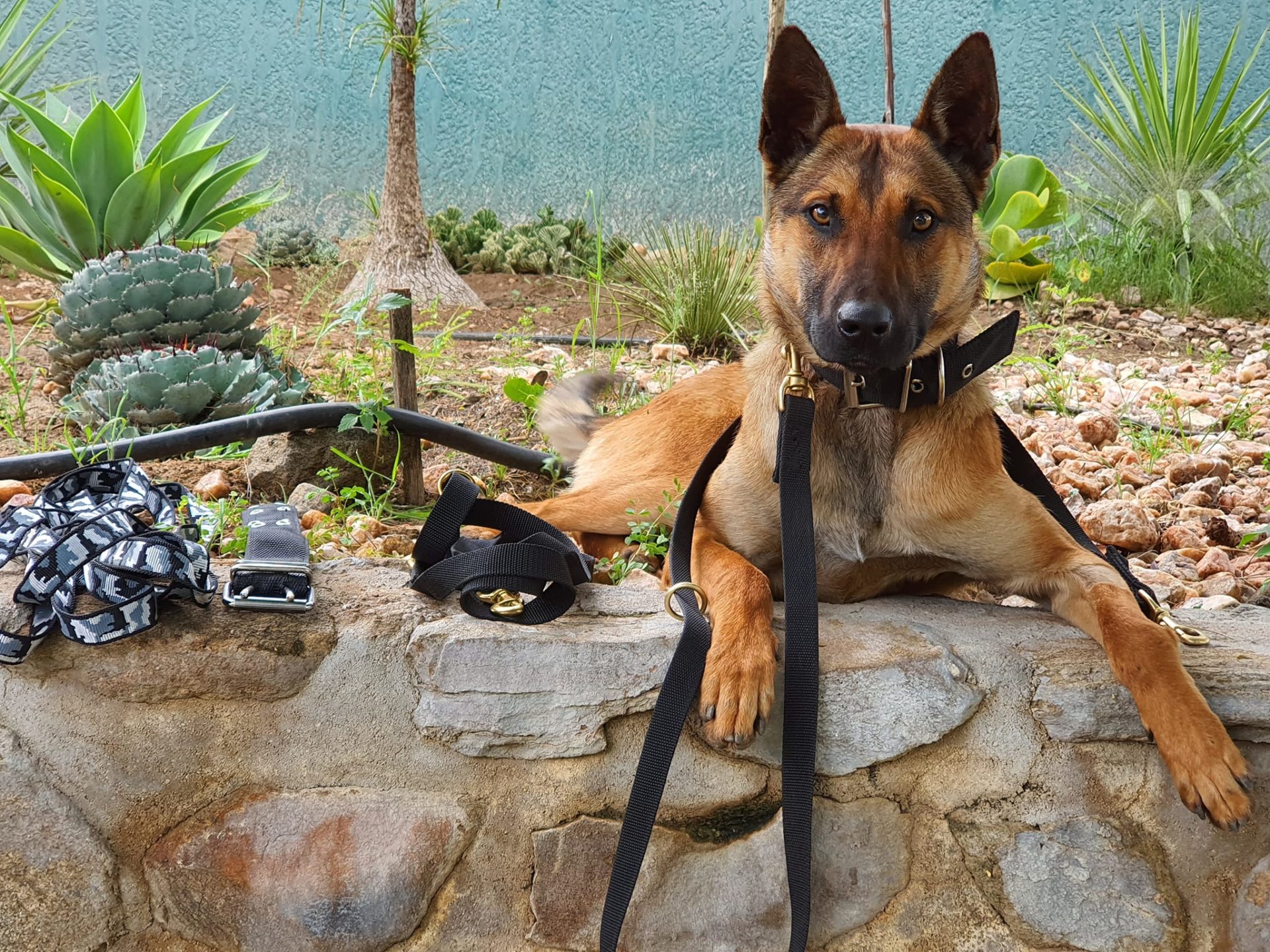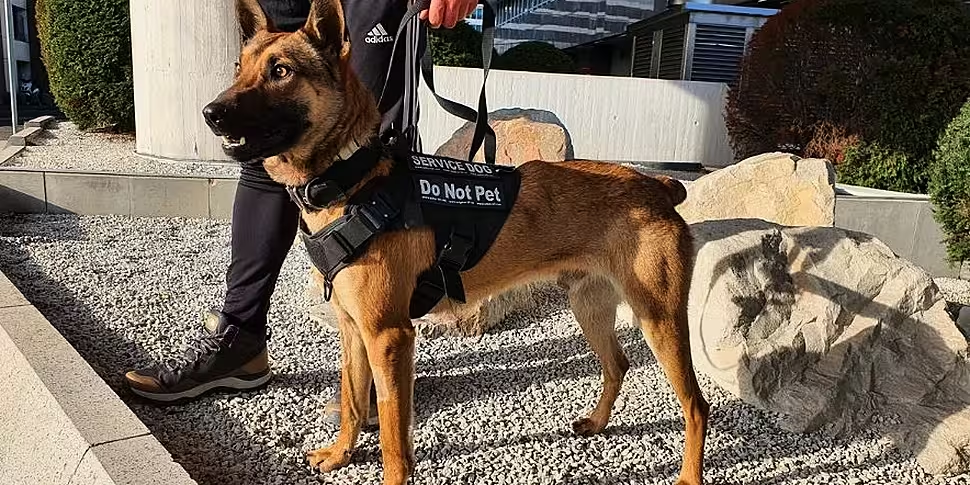A man who is training dogs to hunt poachers in Africa has said the animals are the most adaptable of all species.
Rory Hennebry is from Cork but currently operates out of Namibia.
He founded the K9 Wildlife Project to train and supply dogs for wildlife conservation.
Mr Hennebry told Moncrieff there are different types of poaching.
"There is subsistence poaching, which would be people hunting to feed themselves," he said.
"Then there is high-value targets, such as rhino and elephants.
"There's people trophy hunting which is done legally and illegally."
 Shady spot for a rest. Image: K9 Wildlife Project
Shady spot for a rest. Image: K9 Wildlife ProjectMr Hennebry said the dogs have a lot to adapt to.
"They have to acclimatise to a lot of things, not least of all the climate," he said.
"When they get off the plane the environment is different, the air is different, the water's different, the food's different.
"It's an immersion of the senses for the dog.
"I can't give him the heads up, 'Oh by the way, we're travelling next week'.
"So, we do have to prepare them in the sense of get them to deal with stress, get them accustomed to dealing with new environments on a regular basis.
"The breed we choose and the dogs as a whole are very adaptable.
"They are the most adaptable of all spices; that is how they've managed to tolerate us for 20,000 to 30,000 years".
 AK settling in his new home. Image: K9 Wildlife Project
AK settling in his new home. Image: K9 Wildlife ProjectMr Hennebry said when hunting a poacher, the first port of call is the rangers.
"When they get word that there is humans on the property when they shouldn't be there... they will go and track those poachers," he said.
"In a really bad situation [where] they hear gunshots or they find an animal recently dispatched, they'll go to that site and they will track from there.
"Some of these guys are really, really talented trackers, but what the dog does is it speeds up [the process].
"No matter how good a tracker a human is, he's not going to be able to track another human or group of humans at the same speed as they can move.
"What the dog does it speeds up the capacity of the rangers to track them.
"It also allows the rangers to track at night, whereas normally they'll have to stop tracking at nightfall".
 Image: K9 Wildlife Project
Image: K9 Wildlife ProjectMr Hennebry said the dogs have a three-fold effect on the process.
"It deters initially; the fact that the dogs are there, that information goes out to the townlands and to the areas of the poachers," he said.
"After that it's detection - the dog can detect tools that have been hidden on the property.
"Sometimes a group of poachers could spend four or five days on the property gathering intelligence as to where the animals are.
"Then detecting them, as in the sense of following the track and locating them, hopefully before anything can happen", he added.
Mr Hennebry said poaching has been escalating "at a phenomenal rate" since COVID-19, with potentially two to three rhinos being poached per day.









